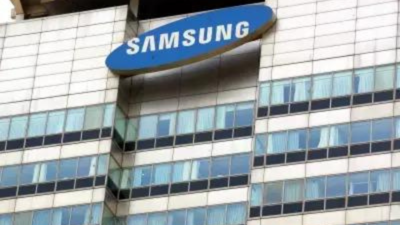NEW YORK: Samsung is ready to shift a part of its smartphone production from Vietnam, if US tariffs become lower in India. This would see the world’s biggest smartphone maker following American rival Apple in making India a top hub for making smartphones for the US market.“Samsung has production presence in several countries. Uncertainty in the US is currently very high and because of that we have been preparing against a number of different scenarios. We are ready to produce for the US from multiple factories, including India,” Samsung’s global president and chief operating officer (mobile experience division) Won-Joon Choi said on the sidelines of the company’s global launch of Galaxy Fold7 (priced upwards of Rs 1.75 lakh) and Flip7 (Rs 1.1 lakh) devices here. “We are already manufacturing some of the smartphones that are going to the US at our factory in India.”He said the company has been watching US president Donald Trump’s tariff announcements carefully and this can lead to change in sourcing across global factories. “One of the things that we have prepared was to have diversification of our factories for the product we will ship to the US. Depending on the final decision by the Trump administration, we have already established a system in which we can shift from one (location) to another to respond to the final decision more flexibly.”Samsung has large production hubs in India as well as Vietnam. While the India factory, at Greater Noida in Uttar Pradesh, is used largely to meet domestic demand apart from exports, the Vietnam location is primarily used for export needs.The US is Vietnam’s largest export market and there are indications that Hanoi may be given a comfortable 20% tariff for shipments to the US. India has also been seeking lower duty for electronics exports to the US, which are led by multi-billion-dollar iPhone shipments, Samsung’s devices, and other telecom players.“Even without taking the tariff situation in consideration, we operate with multiple factories across the globe and we have always tried to optimise our operations as efficiently as possible so that we achieve business stability and provide price stability to our consumers,” Choi said.He said situation in the US remains uncertain, and the company has been analysing the situation very carefully. “Some of the things that we need to plan – set the right equipment, set the factory line ready, and get our factory to be certified so that we can make the products and ship to the US. We have all those things ready.” Speaking about impact from restrictions placed on rare earth minerals from China, he said the company is prepared to handle such situations. “Samsung has long been managing its global supply chain, preparing for different cases. We have long been trying to diversify our global supply chain, so even for the rare earth metals, we have been trying to source from different companies and different countries. We have long been seeking diversification so I can tell you that for the near-term, there has been no production disruptions.“(The correspondent is in US at the invitation of Samsung)
Trending
- Jane Street Sebi ban: F&O trade volumes drop nearly 20%; both BSE and NSE shares take a hit
- Gibran raises $2.6 million to build nature-inspired, adaptive AI systems | India Business News
- Air India crash: US FAA, Boeing says ‘fuel switch locks safe’; probe report raised questions on engine cutoff
- Stock market today: Nifty50 opens in red, goes below 25,100; BSE Sensex down over 200 points
- ‘Musk’s SpaceX to invest $2 billion in his AI startup’
- Wyndham Hotels to expand in India; 50+ new properties in pipeline; more global brands on the way
- FPI inflows: Foreign investors pump in Rs 3,839 crore in July; D-street outperforming global markets
- India’s second-hand car market: Poised to cross 6 million sales; over twice as fast as new cars
- India-US talks: Experts urge caution on trade pact; ‘hasty deal under pressure’ could backfire
- Crypto cold war heats up: As Pakistan, Bhutan, and US go all in, where does India stand? Report reveals how the world is weaponising blockchain

